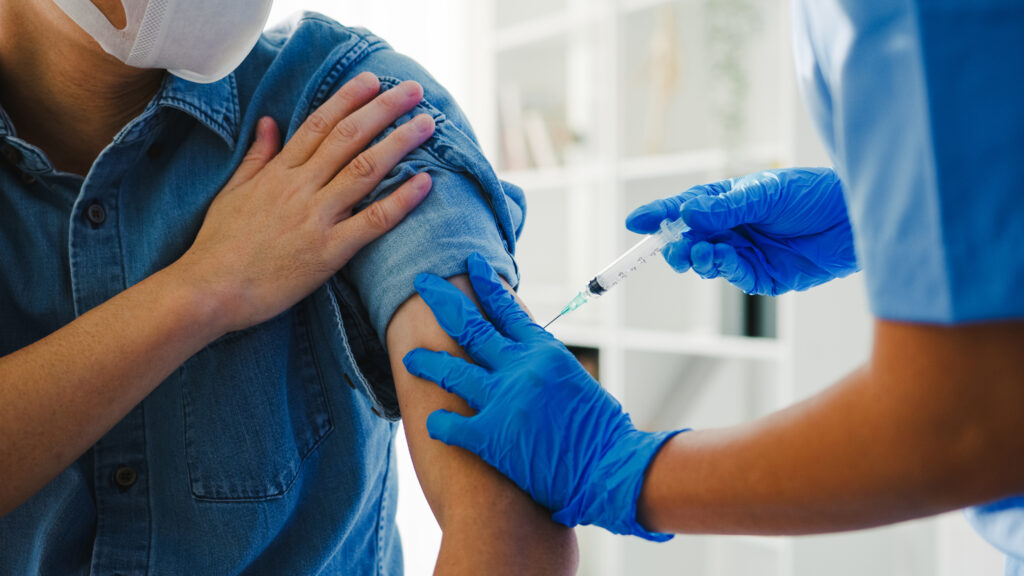A study led by the Primary Immunodeficiency Unit of Bellvitge University Hospital (HUB) and the Bellvitge Biomedical Research Institute (IDIBELL) indicates that vaccines against SARS-CoV-2 are safe and effective in most immunodeficiency patients.
These vaccines were developed with the goal of protecting the population from the most severe forms of COVID-19. Today, they have become one of the main tools for controlling the pandemic. And while vaccines are being very effective in people with a competent immune system, the response in immunosuppressed people is not yet well defined.
The article, published in the journal Frontiers in Immunology, shows that three out of four people with a serious immune system defect called common variable immunodeficiency produce antibodies and generate a correct immune cell response with vaccination. On the other hand, half of the people who take medication that reduces the number of B cells, the antibody-producing cells, do not generate an adequate antibody response after SARS-CoV-2 vaccination but they do show a protective cellular response in almost all cases. Therefore, despite the apparent lack of a protective antibody response, these individuals also benefit from the protection afforded by these vaccines through the cellular response.
Dr. Xavier Solanich, principal investigator at IDIBELL and specialist in the Internal Medicine Service at Bellvitge Hospital, points out that the effectiveness of these vaccines in people with immune defects is lower than in the healthy population, but it is still very high, and therefore, is an essential measure of prevention for this group.
Predictive factors are also identified in the study, such as the levels of certain cells in the immune system, which indicate whether or not a patient with congenital defects will respond to the SARS-CoV-2 vaccine. “Having predictive factors can be very useful in clinical practice because it can allow us to anticipate certain situations. In our study we were able to determine only one of the subgroups of patients, and therefore new studies are needed in this sense” declares Dr. Arnau Antolí, first author of the article and researcher at IDIBELL and Bellvitge University Hospital.
Finally, the researchers point out that failure to develop an appropriate response to vaccination does not mean that these patients should have severe COVID-19. In fact, the evolution of COVID-19 is partly determined by immunosuppression but is largely dependent on many other factors such as old age or certain comorbidities.
The Bellvitge Biomedical Research Institute (IDIBELL) is a biomedical research center created in 2004. It is participated by the Bellvitge University Hospital and the Viladecans Hospital of the Catalan Institute of Health, the Catalan Institute of Oncology, the University of Barcelona and the City Council of L’Hospitalet de Llobregat.
IDIBELL is a member of the Campus of International Excellence of the University of Barcelona HUBc and is part of the CERCA institution of the Generalitat de Catalunya. In 2009 it became one of the first five Spanish research centers accredited as a health research institute by the Carlos III Health Institute. In addition, it is part of the “HR Excellence in Research” program of the European Union and is a member of EATRIS and REGIC. Since 2018, IDIBELL has been an Accredited Center of the AECC Scientific Foundation (FCAECC).

